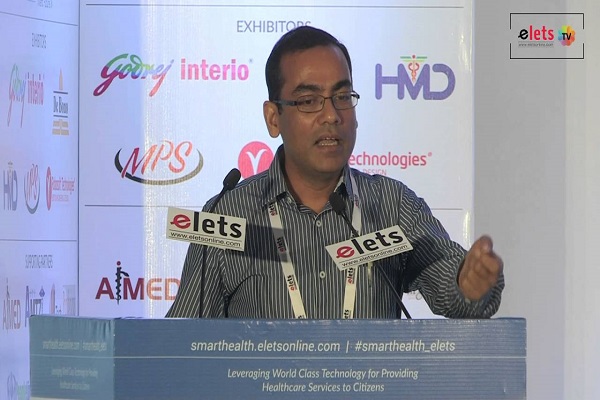

Mission Director
National Health Mission (NHM)
Government of Uttar Pradesh
Uttar Pradesh has embraced technology to ensure that improved and best healthcare facilities can be accorded to the people who actually need it, says Alok Kumar, Mission Director, National Health Mission (NHM), Government of Uttar Pradesh. Excerpts:
How does technology help the overnment deliver best healthcare facilities to the people in the last mile?
Chief Minister Akhilesh Yadav has recently launched the mobile application for the ‘108’ Samajwadi Health Service. With the launch of this mobile application, people of the state will be directly benefited and would be able to keep a tab on the ambulance service. With a click, the caller through GPS would not only be able to locate the ambulance but would get information on the route of the vehicle. A web portal and an ambulance tracker system have also been created for this purpose. More than 69 lakh people have been benefited through the ‘108’ Samajwadi Health Service and free service has been rendered to 1.5 crore plus pregnant women and ill infants up to the age of one year. This was a record in itself.
What is the machinery available to combat emergency situations like the recent rail tragedy held in Kanpur?
At present under the 108 health service 1,488 vehicles and under the 102 National Ambulance Service, 2270 vehicles are working. Under the new system, the caller will be able to know the location of the ambulance he has called, something which was not available hitherto. Google Mapping is also being assimilated in the mobile app and once installed in a smartphone, ambulance can be requisitioned even without calling. The dashboard of the web portal has been designed in such a way that all information with regards to ambulance service is flashed immediately. A feedback option has also been introduced on the web portal.

How mSehat Scheme has improved the performance of frontline health workers’ (accredited social health activists (ASHAs) and auxiliary nurse midwives (ANMs) day-today work?
The ‘mSehat’ scheme has been developed to empower the frontline health workers (ASHAs and ANMs) by providing smartphones/tablets with customised apps that will capture the complete Reproductive, Maternal, Newborn Child and Adolescent Health (RMNCH+A) continuum of care services. mSehat intends to achieve 100 per cent coverage for timely and appropriate care for pregnant and lactating mothers, immunisation of pregnant women and infants, nutrition for children below 6 years and adolescent girls, and streamlining the process of data collection.
The frontline health workers are provided ondemand training and regular skill updates. There is a provision of mobile phone based multimedia job aid for beneficiary counselling, registration, tracking, reporting, screening and referral. In due course of time, mSehat aspires to interact with the Mother & Child Tracking System (MCTS) and reproductive child health (RCH) e-governance schemes of the Government of India which will help in real-time data update.

What are the major challenges in implementing e-governance projects in the State?
Whenever any new technology is introduced in the system, a formal training session is required to make it user-friendly. In the Health Department, I feel significant emphasis needs to be given on training, behavioural change and handholding of frontline health workers (ASHAs and ANMs). Besides, 2G/3G connectivity in remote villages is another major challenge, as our software and application run on Internet.
What is the roadmap to achieve targets of Hausala Sajheedari programme, a big initiative undertaken by the Government of Uttar Pradesh?
Under the Hausala Sajheedari programme, the Government of Uttar Pradesh invites private health facilities and family planning surgeons in the State to join hands with the Government and contribute to the State’s commitment to Family Planning 2020, thereby achieving the larger vision of stabilising the population growth. The entire process of accreditation and reimbursement of private sector health facilities has been simplified through a dedicated online web portal called ‘Hausala Sajheedari’, which provides end-to-end solution designed and launched under the overall leadership and supervision of a state-level apex body called State Task Force under the patronage of Principal Secretary – Health and Family Welfare, Government of Uttar Pradesh. Hausala Sajheedari web portal provides one-stop solutions for private healthcare facilities and private sector surgeons in the state for online accreditation, empanelment, progress reporting, submission of claims and online reimbursement through bank transfers.
Be a part of Elets Collaborative Initiatives. Join Us for Upcoming Events and explore business opportunities. Like us on Facebook , connect with us on LinkedIn and follow us on Twitter, Instagram.











